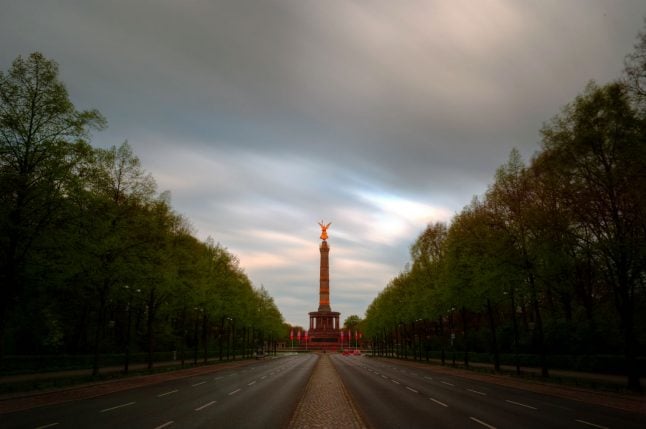At the entrance to Berlin’s Tiergarten park lies a damp piece of paper surrounded by wet flowers.
“My dearly beloved wife Susanne was found here on September 8th,” reads the note, with a picture of a smiling woman on it. “40 years of happy marriage wiped out, just like that.”
The note and flowers are a memorial to Susanne F., a 60-year-old art historian, who was murdered in Berlin’s central park last month. As her mobile phone and other valuables were missing, police suspect that her attacker was motivated by greed.
A suspect, an 18-year-old Russian, has now been arrested for the murder.
Susanne F.'s killing was the last straw for Stephan von Dassel, the mayor of the central Berlin neighbourhood of Mitte, where the Tiergarten is located.
He complained last week that the park had turned into a “zone of illegality”, saying that park staff were at breaking point due to rising homelessness, drug dealing and prostitution in the heavily wooded green space.
Von Dassel, a Green party politician, complained that “the Polish government shouldn’t solve its social problems in our parks” and called for homeless east Europeans who are camping there to be deported. Party colleagues accused him of using populist language, pointing out that his suggestion was against European law.
'Things have gone crazy'
 Homelessness in Tiergarten. Photo: DPA
Homelessness in Tiergarten. Photo: DPA
Basti, a 28 year old from Bavaria, is one of the growing number of homeless people who have taken up residence in the 210 hectare park.
A carpenter by trade, he spends much of his time collecting discarded bottles to trade them in at recycling stations. On Tuesday morning he was sitting in front of his tent eating a sandwich.
“Since the murder everything has gone crazy here. But we’re the only ones who are always calm,” he says, pointing at the row of eight tents behind him. His brother camps next to him, then two Poles, and next to them someone who has been there for eight years.
“We look after each other's stuff when we got bottle collecting. Otherwise it would all be stolen. And we never do anything to anyone,” he insists.
But he says that the park is quite different at nighttime to what it is like during the day, when it is filled with cyclists, mums pushing prams and joggers.
Basti says he has often found empty handbags, thrown away by robbers once they have emptied them of valuables. He adds that drug dealers hang out in the more thickly forested areas.
Prostitution at the Victory Column
In the area around the Victory Column – the Prussian war memorial that stands in the park's centre – men have been meeting for sex for years.
Now refugees are working as male prostitutes there. During the day men can be seen waiting on the paths. When potential customers approach them they say “hello” before disappearing behind a tree.
The initial appearance of calm in the park is deceptive, one park ranger says.
“It is getting worse all the time. In some areas children are being offered for sex. Other people break down the branches to build themselves tents. When we try and intervene they just make rude comments in reply,” she says.
Berlin’s city mayor has been at pains since the start of the year to give the impression the city government is improving security. On an almost monthly basis new initiatives are being announced: more police, more police stations, more CCTV and new investigation teams.
The city senate has also been quick to respond to concerns around the Tiergarten. Starting on Wednesday, the police presence there will be beefed up.
“At least in the short term this should noticeably change things,” said a senate spokeswoman.
Basti, the Bavarian camping at the west side of the park, isn’t impressed by the sudden glare of attention from politicians.
“They should just leave us in peace,” he says.



 Please whitelist us to continue reading.
Please whitelist us to continue reading.